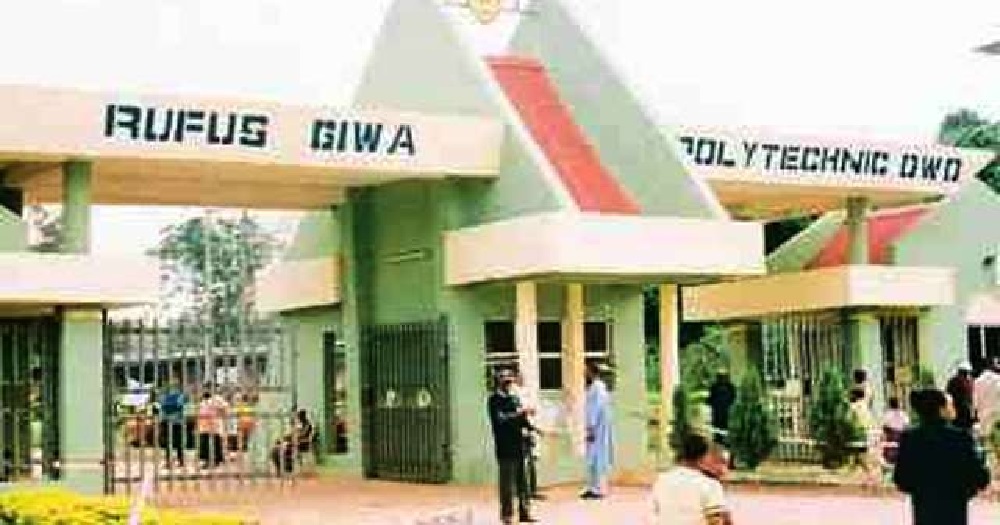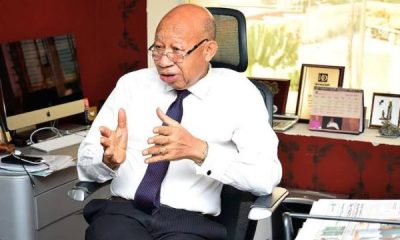News
Memory lane: How I Made Obasanjo Head Of State Against His Wish – TY Danjuna

Ex-Minister of Defense, General TY Danjuma, rtd, on memory lane on how he made General Olusegun Obasanjo Head of State after General Murtala Muhammed’s demise.
Read:
“Then, Murtala was killed. I think it is public knowledge that Obasanjo fled on the day Murtala Muhammed was killed. He remained in hiding until the coup was aborted and he reached out, first, to M.D Yusuf (Inspector-General of Police), who then called him and he came out of hiding, and joined us in Dodan Barracks. We discussed the funeral of Muhammed and made arrangement as to who would accompany his remains to Kano, so on and so forth.
At the end of the meeting, Obasanjo asked M.D Yusuf and I to stay with him in the chambers (Dodan Barracks). After everybody had left, Obasanjo told M.D Yusuf and I that what had happened had destroyed his faith in the loyalty of the Nigerian Army. That he had decided that after the funeral, he would retire, leave the Army and go home. But before that he would name me as the successor to Murtala. I told him that, that amounted to desertion and that he could not run away. He was number 2, number 1 had been killed in battle; he as number 2 would take over.
He said no, no, no; that he didn’t think he should stay; that he wanted to go. We argued that. In the end, Yusuf said, “look, let’s all sleep over this matter; tomorrow we will decide.” I said, “look, there’s no question of sleeping over it; the point now is we should be looking for who is going to take Obasanjo’s seat as number 2 because there is no way we are going to allow him to chicken out and leave at this time; we must all stay and face the future together.”
So, we left and I went home. By this time, we had called all the members of the Supreme Military Council to Lagos.
The following day, he (Obasanjo) started to talk in the same vein and I cut in. I said that Obasanjo could not leave; he had to stay and be the Head of State and we should be looking for the number 2 man. I had, over night, considered the consequences of what had happened and came to the conclusion that if we were not careful; we would end up with a religious conflict on our hands. Already, that evening – the evening that it became public knowledge that Murtala had been killed – Dimka had made a broadcast in which he said, “good tidings” among other things. He had imposed a curfew – from dawn to dusk (laugh) and said all sorts of things using the expression, “good tiding.”
Abubakar Gumi, in the North, said that the coup that killed Murtala was a Christian coup because of the utterances of the coup leader, who said, “good tidings” because it is an expression of Christians. Already, there was tension in the North. The governor of Kaduna State, an air force officer, Usman, had to contain him: that it had nothing to do with Christians, that it was a purely military affair.
I knew that if we were not careful, as time went on, we should be consumed by religious strife in the country. I decided that the new Chief of Staff must come from the North preferably, a Hausa/Fulani man. From my knowledge, I had two candidates – (Muhammadu) Buhari, who was really my number one candidate for that post and the late Shehu Yar’Adua. Shehu was not in the country; he was abroad as Minister of Transport. You would remember we had inherited a cement armada in the Lagos and Port Harcourt (ports) and his (Shehu’s) first assignment was to decongest the Lagos port and get rid of all the vessels that were clogging Nigerian waters, and attracting huge demurrages from our government. He (Shehu) was abroad attending to that problem when Dimka struck.
So, they were the two candidates. Buhari, at that time, and even today, is one of the most upright Army officers that the Nigerian Army has produced – very clean, a very strict officer. Unfortunately for him, he served under me for a short time in Port Harcourt and I observed that he was a very inflexible person. I reasoned that Buhari, any day, could be a first class Chief of Army Staff. Why waste him in a political post? Why shorten his career because if he became Chief of Staff, he would have to leave at the end of the tenure. Why waste him there?
Besides, I observed that he was too rigid; he was too inflexible to hold a political post. If you are in politics, you must be flexible; you must compromise from time to time. In politics, they call it pragmatism. But in the military, if you are pragmatic, it is regarded as a weakness. I said no, not Buhari. Shehu, I didn’t know him well except that I knew that, of all the officers of his rank, he was the most politicised. So, sending a politicised Army Officer to a political post, I thought, was a good thing. That was how I named Shehu the next Chief of Staff.
When we came to the Supreme Military Council and Obasanjo started singing the same tune that he had sung to me and M.D Yusuf the previous night, I said no, that was not the issue; he was the most senior person and he had to stay there. He had to stay in office. He made some feeble resistance but I think he had slept over our discussion and concluded that if we insisted, he would stay.
There were a few voices of dissent. The first came from the Chief of Air Staff, Isa Doko, who said that the problem we were facing was an Army problem and that the Army boys had confidence in me. That we had just crushed an attempted coup, and we should not put somebody there that the Army didn’t have confidence in. A few other officers supported him but I overruled them. And so, I imposed Obasanjo on my colleagues in the Supreme Military Council.”
—General TY Danjuma in an interview with THE GUARDIAN, February 17, 2008.
News
A’Court reserves judgment on Kano LG poll dispute

A special panel of the Court of Appeal sitting in Abuja has reserved judgment in five separate appeals arising from the legal disputes surrounding the conduct of the 2024 local government elections in Kano State.
The appeals stem from two rulings delivered by the Federal High Court in Kano, which, among other declarations, nullified the composition of the Kano State Independent Electoral Commission.
The cases include Appeal No. CA/KN/20/2025, filed by KANSIEC with the Independent National Electoral Commission and four others listed as respondents.
Another, CA/KN/233/2024, was filed by the Kano State House of Assembly and another party, with Aminu Aliyu Tiga and 14 others as respondents.
Appeal CA/KN/290/2024 was brought by the Attorney General of Kano State and six others against the All Progressives Congress and three others.
Additionally, Appeal CA/KN/291/2024 was filed by KANSIEC and eight others, with the Kano State House of Assembly and six others listed as respondents.
In the appeal marked CA/KN/233/2024, the Kano State House of Assembly and another appellant, represented by Chief Adegboyega Awomolo (SAN), urged the appellate court to overturn the judgment of the Federal High Court, which had barred KANSIEC from conducting local government elections.
Awomolo argued that the Federal High Court lacked jurisdiction to entertain the case, noting that the suit filed by Aminu Tiga and the APC was statute-barred at the time of filing.
He also contended that the plaintiffs lacked the legal standing to initiate the case.
Justice Simon Amobeda of the Federal High Court had, on October 22, 2024, restrained KANSIEC from conducting elections in the 44 local government areas of Kano State.
The judge ruled that the electoral commission’s members were card-carrying members of the ruling New Nigeria People’s Party, in breach of Sections 197 and 200 of the 1999 Constitution.
Justice Amobeda further directed INEC not to release the national voters’ register for the purpose of the local government elections in the state.
Additionally, he barred the police, the Department of State Services, and other security agencies from providing support or protection for the polls.
Unhappy with the verdict, the Kano State House of Assembly and other affected parties approached the Court of Appeal, arguing that local government election matters are under the exclusive purview of the state and can only be adjudicated by a Kano State High Court—not the Federal High Court.
After hearing all arguments on Tuesday, the three-member appellate panel led by Justice Georgewill Ekanem announced that judgment had been reserved and would be delivered on a date to be communicated to the parties involved.
News
Ondo poly workers commence strike action over unpaid wages

Workers at the Rufus Giwa Polytechnic, Owo, in Ondo State on Tuesday embarked on an indefinite strike over the non-payment of salaries by the Ondo State Government.
The striking workers, who are members of the Non-Academic Staff Union and the Senior Staff Association of Nigeria Polytechnics, staged a peaceful protest on the institution’s campus to express their grievances.
The aggrieved staff revealed they are being owed six months’ salaries and accused the government of failing to implement the national minimum wage.
They carried placards with messages including, “We are hungry, pay our six months’ salaries,” “Mr Governor, please implement our 2025 budget,” and “Acting Rector, please clear our 2022, 2023, and 2024 promotion arrears.”
During the protest, the Chairman of NASU, RUGIPO chapter, Mr. Julius Olugbenga-Aro, and his SSANIP counterpart, Mr. Saka Olokungboye, called on Governor Lucky Aiyedatiwa to urgently address the workers’ demands.
They lamented the hardship faced by their members, saying many are unable to meet basic needs due to the unpaid wages.
Olugbenga-Aro stated, “This protest is to express our frustration over the non-payment of six months’ salary arrears and the failure of the Ondo State Government to implement the national minimum wage for polytechnic staff.”
While acknowledging some of the governor’s developmental efforts at the institution, including the recent approval for the polytechnic’s conversion to a university, the union leaders appealed for more urgent actions.
They urged the state government to approve immediate payment of the outstanding salaries, ensure full implementation of the 2025 institutional budget, and begin payment of the new national minimum wage.
They also warned that failure to act swiftly could result in prolonged disruptions to the academic calendar, further affecting students and the institution at large.
News
Court imposes N100m damages penalty on Abuja school over student’s death

A Federal Capital Territory High Court in Abuja on Tuesday awarded the sum of N100m in general damages against Louisville Girls Secondary School, Gwagwalada, for negligence of duty of care which led to the death of a student.
Mr Ifeanyi Ikpeatusim had sued the school for negligence that resulted in the death of his 9-year-old daughter, Kamzie,
In the suit marked CV/1738/18, Ikpeatusim alleged that the school’s failure to provide adequate medical attention after Kamzie who fell ill shortly after her admission and resumption in the school led to her untimely death.
Kamzie, who was admitted as a boarding student in September 2017 became severely ill by October 2 and died a few days later.
Justice Sylvanus Oriji, while delivering judgment in the suit brought before the court after awarding the N100m cost, ordered a 10 per cent interest on the judgment sum from April 8 until full payment.
He also awarded an additional N300,000 as the cost of the suit.
Justice Oriji while pronouncing the decision of the court, held that the evidence presented showed the school and its agents acted negligently by failing to attend promptly and adequately to Kamzie’s medical needs.
“The claimant established his allegations of negligence against the school.
“There is no amount of money that can bring back the child to life,” he stated.
Justice Oriji however acknowledged the fact that one significant outcome of the case was the improvement of the school’s sickbay following the incident.
He noted that the presence of doctors attending to students twice daily was a commendable development.
While the claimant had asked the court to order the school to name one of its structures in Kamzie’s name in her honour, Justice Oriji noted that the improvement in the school’s sickbay was sufficient enough to know the school is making amends from its mistake.
“The court thinks that the improvement in the sickbay, ensuring doctors are available twice daily, is in honour of Kamzie, as part of reforms recommended by her family.
“The claimant should take solace in the fact that Kamzie has been honoured by the school through these improvements.”
-

 News12 hours ago
News12 hours agoOERAF held memorial lecture on conflict resolution, security/safety of community in Nigeria
-

 News22 hours ago
News22 hours agoJust in: Founder of Diamond Bank and ex-chairman of MTN, Paschal Dozie is dead
-

 News17 hours ago
News17 hours agoTRADE WAR! U.S. angry over Nigeria’s import ban on 25 products
-

 News23 hours ago
News23 hours agoNaira Nosedives Against Dollar
-

 News23 hours ago
News23 hours ago2Baba’s Lover Natasha Osawaru Fired As Edo Assembly Minority Leader
-

 Sports22 hours ago
Sports22 hours agoReal Madrid keeping tabs on Victor Osimhen
-

 News18 hours ago
News18 hours agoINTERVIEW: Introduction of Child Rights Curriculum In Nigerian Universities Will Take CRA to Families – Dr Obiorah Edogor
-

 News22 hours ago
News22 hours agoOERAF Executive Director Dr Akpodiete, Held Memorial lecture on Essence and benefits of health insurance+Photos

















